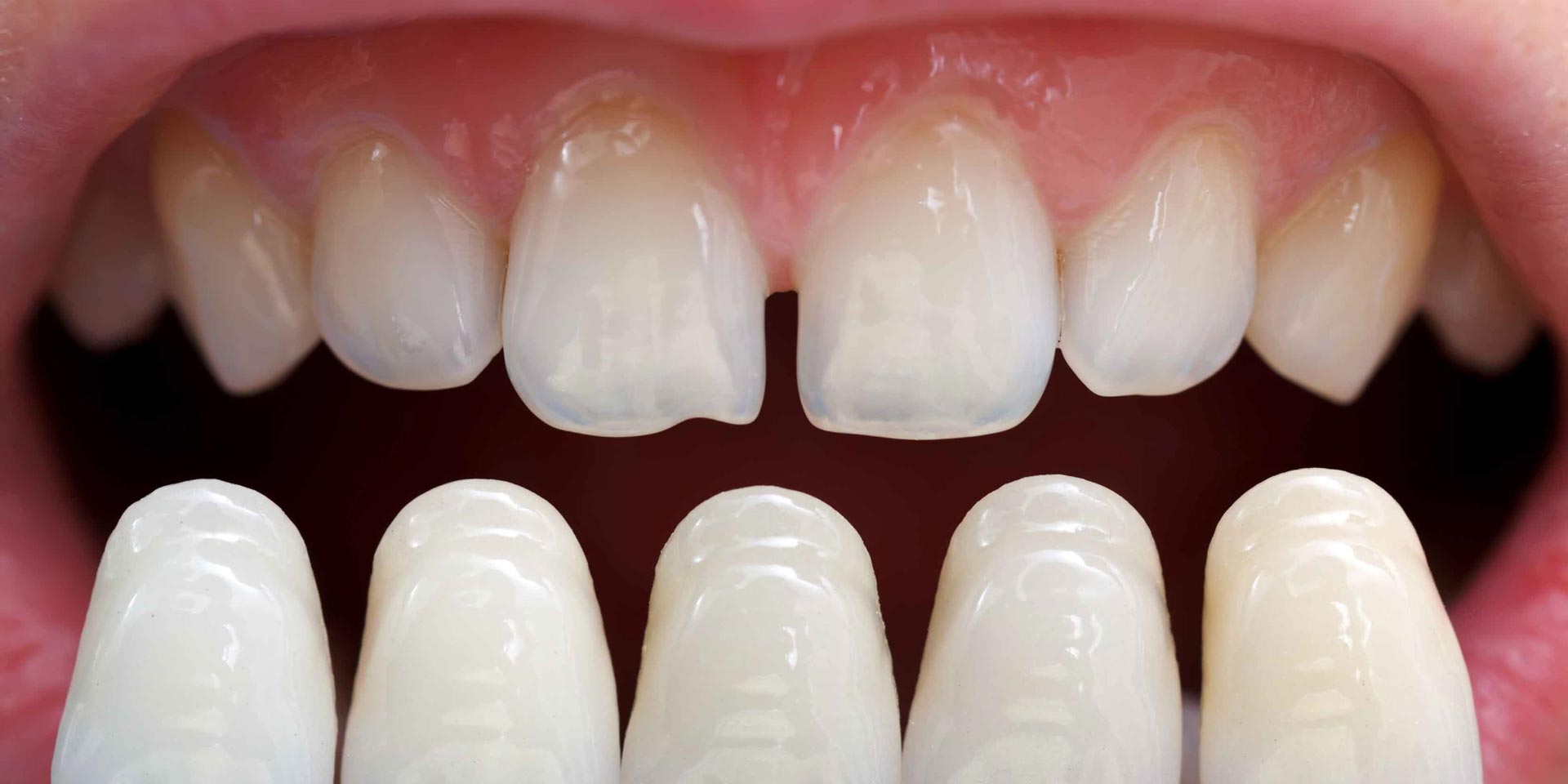
Contents
- 1 Advantages and Disadvantages of Veneers
- 2 What are Veneers and How Do They Work?
- 3 What are the Advantages of Veneers?
- 4 They Can Enhance Your Smile and Confidence
- 5 They Are Durable and Long-Lasting
- 6 They Are Customized and Natural-Looking
- 7 They Can Be Expensive and Not Covered by Insurance
- 8 They Are Durable and Long-Lasting
- 9 They Are Customized and Natural-Looking
- 10 What are the Disadvantages of Veneers?
- 11 They Can Be Expensive and Not Covered by Insurance
- 12 Some alternatives or options to reduce the cost of veneers
- 13 They Can Cause Sensitivity and Discomfort
- 14 They Can Be Damaged or Discolored
- 15 FAQs
- 16 Conclusion
Advantages and Disadvantages of Veneers
Have you ever wished you could have a perfect smile, like the celebrities and models you see on TV and magazines? If you have, you might have considered getting veneers, one of the most popular and effective cosmetic dental treatments available today. Veneers are thin shells of porcelain or composite resin that are bonded to the front surface of the teeth to improve their appearance, shape, color, and alignment. But are veneers really worth it? What are the pros and cons of getting veneers? In this article, we will explore the advantages and disadvantages of veneers, and help you decide if they are right for you.

What are Veneers and How Do They Work?
Veneers are a type of dental restoration that can enhance the look of your teeth and smile. They are made of thin layers of material, usually porcelain or composite resin, that are custom-made to fit over your natural teeth. Veneers can cover various cosmetic dental issues, such as chipped, stained, crooked, or gapped teeth, and create a more uniform and attractive smile.
To get veneers, you will need to visit your dentist for two to three appointments, depending on the type and number of veneers you want. The first appointment involves the consultation and the preparation of your teeth. Your dentist will examine your teeth and gums, and discuss your goals and expectations with you. They will also take impressions and x-rays of your teeth, and remove a thin layer of enamel from the front surface of your teeth. This is done to create space for the veneers and to ensure a strong and natural-looking bond. The amount of enamel removed depends on the type and thickness of the veneers, but it is usually less than 1 mm.
The second appointment involves the placement and adjustment of the veneers. Your dentist will receive the veneers from a dental laboratory, where they are fabricated according to the shape, size, color, and texture of your natural teeth. Your dentist will then check the fit and appearance of the veneers, and make any necessary adjustments. They will then clean, polish, and etch your teeth, and apply a special cement and a curing light to bond the veneers to your teeth. Your dentist will also remove any excess cement, and evaluate your bite and smile.
The third appointment involves the evaluation and follow-up of the veneers. Your dentist will check the condition and function of the veneers, and address any issues or concerns you may have. They will also give you instructions and recommendations on how to care for and maintain your veneers, and schedule regular dental visits to monitor your oral health and the longevity of your veneers.
There are different types of veneers, each with its own advantages and disadvantages. The most common types are porcelain, composite, and lumineers. Porcelain veneers are made of high-quality ceramic material that is durable, stain-resistant, and natural-looking. They can last for 10 to 15 years, or even longer, with proper care. However, porcelain veneers are also more expensive, invasive, and irreversible than other types of veneers. They require more enamel removal, and cannot be repaired or removed easily. Composite veneers are made of resin material that is cheaper, less invasive, and more reversible than porcelain veneers. They require less or no enamel removal, and can be repaired or removed more easily.
However, composite veneers are also less durable, stain-prone, and natural-looking than porcelain veneers. They can last for 5 to 10 years, or less, with proper care. Lumineers are a brand of ultra-thin porcelain veneers that are thinner, lighter, and more translucent than traditional porcelain veneers. They require little or no enamel removal, and can be placed in one or two visits. However, lumineers are also more expensive, less customizable, and less suitable for severe dental issues than traditional porcelain veneers. They can also look too bulky or artificial, depending on the shape and condition of the natural teeth.
The main benefit of veneers is that they can improve the appearance, shape, color, and alignment of the teeth, and create a more beautiful and confident smile. But what are the specific advantages and disadvantages of veneers? Let’s find out.
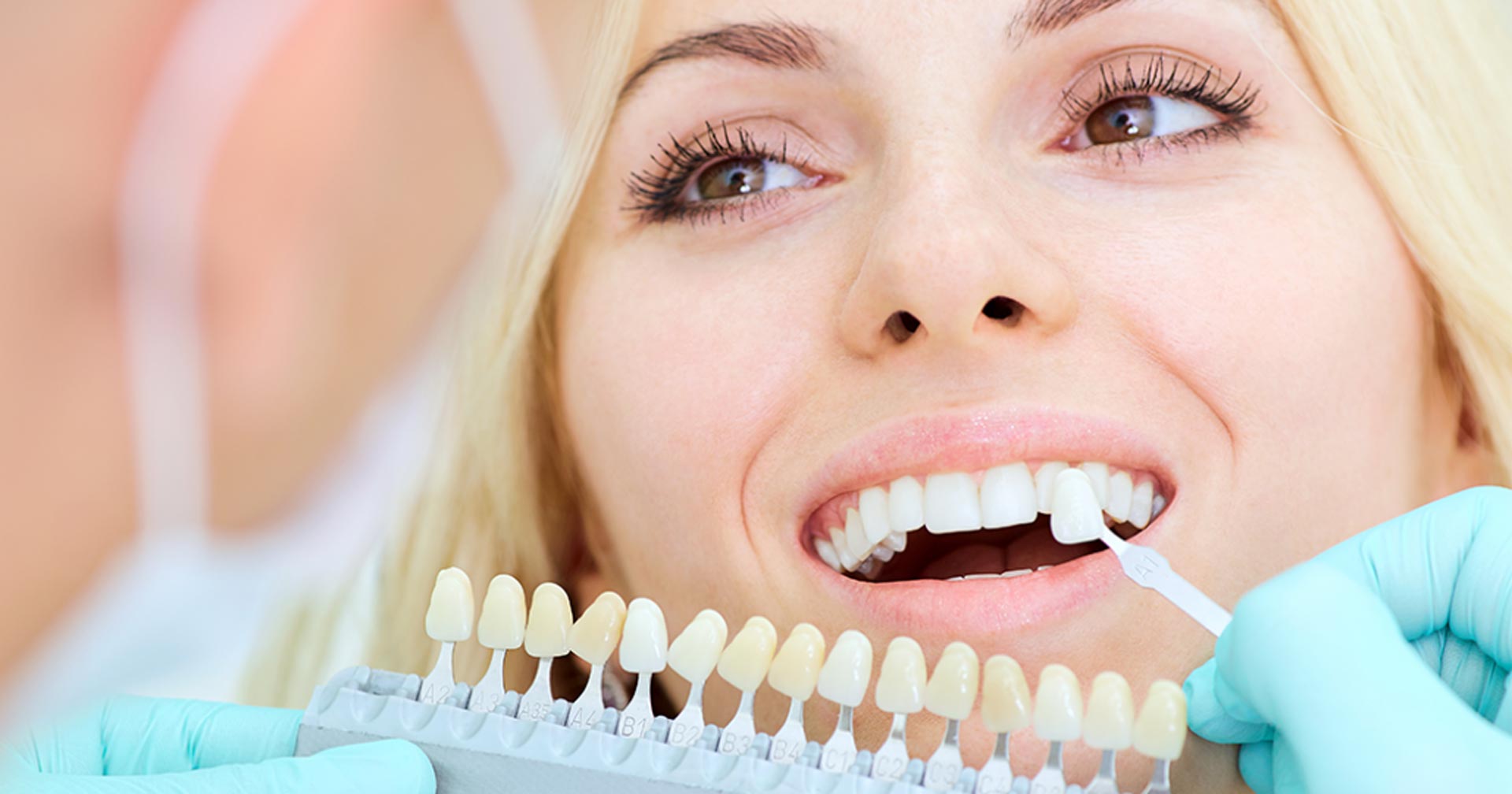
What are the Advantages of Veneers?
Veneers have many advantages that make them a desirable and worthwhile option for many people who want to enhance their smile and confidence. Some of the advantages of veneers are:
They Can Enhance Your Smile and Confidence
One of the most obvious and appealing advantages of veneers is that they can correct various cosmetic dental issues that may affect your smile and confidence. Veneers can cover and conceal imperfections such as chipped, cracked, stained, discolored, crooked, or gapped teeth, and create a more flawless and radiant smile. Veneers can also improve the shape, size, and proportion of your teeth, and create a more symmetrical and balanced smile. For example, if you have small or worn-down teeth, veneers can make them look larger and fuller. If you have uneven or misaligned teeth, veneers can make them look straighter and more aligned.
By improving the aesthetics and harmony of your smile, veneers can also boost your self-esteem and confidence. A beautiful smile can make you feel more attractive, positive, and outgoing, and can also influence how others perceive and treat you. Studies have shown that people with attractive smiles are more likely to be seen as friendly, intelligent, successful, and trustworthy, and are more likely to have better social and professional opportunities. Therefore, veneers can not only enhance your smile, but also your life.

They Are Durable and Long-Lasting
Another advantage of veneers is that they are durable and long-lasting, and can provide you with a lasting and satisfying smile. Veneers are made of strong and resistant materials, such as porcelain or composite resin, that can withstand the normal forces and pressures of biting and chewing. Veneers can also resist stains and discoloration better than natural teeth, as they have a smooth and non-porous surface that does not absorb pigments from foods, drinks, or substances.
Depending on the type and quality of the veneers and the care of the patients, veneers can last for many years, or even decades, without needing to be replaced or repaired. The average lifespan of veneers is about 10 years, but some veneers can last for 15 years or longer, with proper care. To maintain and protect your veneers, you should follow some simple tips, such as:
- Avoid biting or chewing on hard foods, objects, or substances, such as ice, nuts, bones, or pens, as they can chip or crack your veneers
- Brush and floss your teeth regularly, and use a soft-bristled toothbrush and a non-abrasive toothpaste, as they can prevent plaque and tartar buildup and protect your veneers and gums
- Visit your dentist periodically, at least twice a year, for checkups and cleanings, as they can monitor the condition and function of your veneers and address any issues or problems
- Wear a mouthguard or a nightguard if you play contact sports or have bruxism, as they can protect your veneers and teeth from trauma, pressure, or damage
- Avoid or limit the consumption of foods, drinks, or substances that can stain or discolor your teeth or veneers, such as coffee, tea, wine, or tobacco, as they can affect the color and appearance of your smile
- If you notice any signs of damage, discoloration, or discomfort with your veneers, contact your dentist as soon as possible, as they can assess the situation and provide the appropriate treatment or solution
By following these tips, you can ensure that your veneers will last longer and look better, and that you will enjoy your smile for a long time.
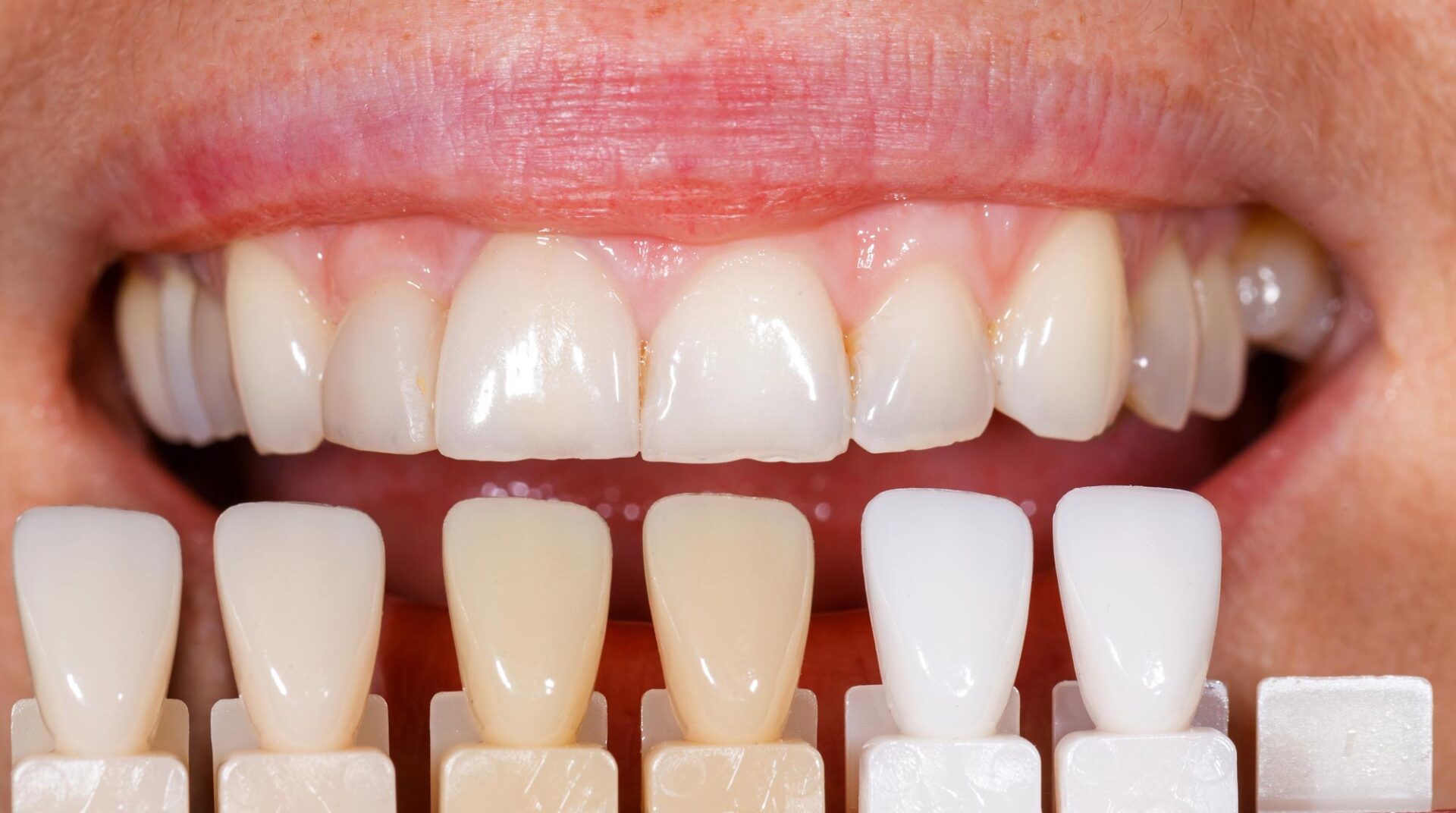
They Are Customized and Natural-Looking
A third advantage of veneers is that they are customized and natural-looking, and can match the shape, size, color, and texture of your natural teeth. Veneers are designed and fabricated to fit over your natural teeth, and to blend in seamlessly with the rest of your smile. Veneers are also made of materials that mimic the light-reflecting properties of the enamel, and create a realistic and natural appearance.
To create customized and natural-looking veneers, your dentist will take into account several factors, such as:
- The shape and size of your teeth and face, and how they affect the proportion and balance of your smile
- The color and shade of your teeth and gums, and how they affect the contrast and harmony of your smile
- The texture and translucency of your teeth and enamel, and how they affect the light and reflection of your smile
- The alignment and spacing of your teeth and bite, and how they affect the symmetry and function of your smile
- Your personal preferences and expectations, and how they affect the outcome and satisfaction of your smile
By considering these factors, your dentist will create veneers that will suit your unique needs and desires, and that will enhance your smile and confidence.
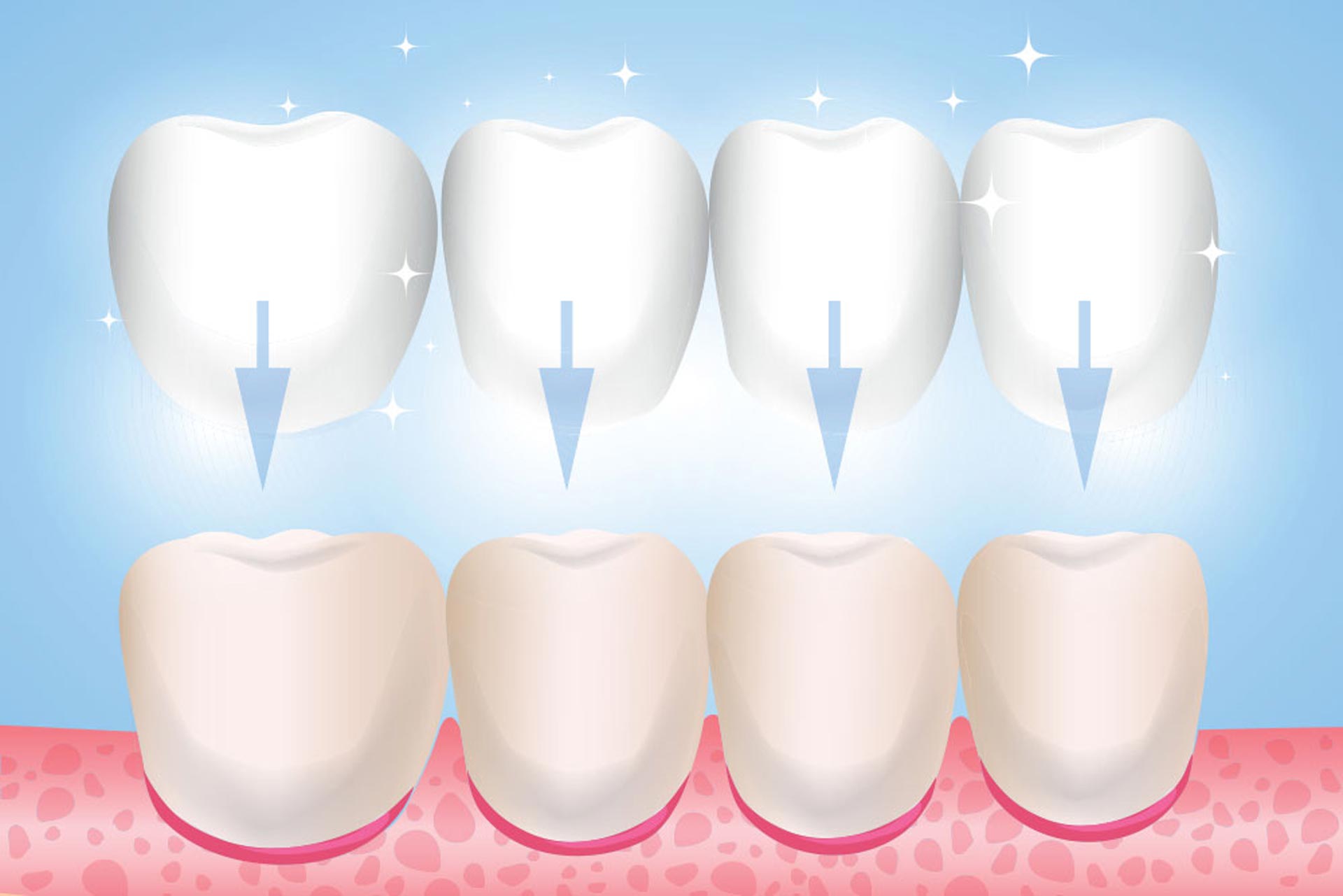
They Can Be Expensive and Not Covered by Insurance
One of the main disadvantages of veneers is that they can be expensive and not covered by most dental insurance plans. Veneers are considered a cosmetic procedure and not a medical necessity, and therefore not eligible for reimbursement or coverage by most dental insurance
- They Can Be Expensive and Not Covered by Insurance: Veneers are considered a cosmetic procedure and not a medical necessity, and therefore not eligible for reimbursement or coverage by most dental insurance plans. The cost of veneers can vary depending on the type, number, and quality of the veneers, and the location and expertise of the dentist. The average cost of veneers in Turkey is about 300 to 500 USD per tooth, while the average cost of veneers in the US is about 1000 to 2000 USD per tooth. Therefore, getting veneers can be a significant financial investment, and you should consider your budget and options carefully before deciding to get them.
- They Can Cause Sensitivity and Discomfort: Veneers can also cause some side effects and complications, such as sensitivity and discomfort. Since veneers require the removal of some enamel, the teeth can become more sensitive to hot, cold, sweet, or sour stimuli, and cause pain or discomfort. This sensitivity can be temporary or permanent, depending on the amount of enamel removed and the individual’s response. Veneers can also cause some discomfort during and after the procedure, such as soreness, inflammation, or bleeding of the gums, or irritation of the surrounding tissues. These symptoms can be managed with painkillers, anti-inflammatory drugs, or ice packs, and usually subside within a few days or weeks. However, if the symptoms persist or worsen, you should contact your dentist as soon as possible, as they may indicate an infection, an allergic reaction, or a poorly fitted veneer.

They Are Durable and Long-Lasting
Veneers are made of strong materials that can withstand daily wear and tear, such as biting, chewing, and brushing. Depending on the type of veneer, they can last anywhere from 5 to 15 years or more, with proper care and maintenance. However, veneers are not indestructible, and they can chip, crack, or fall off due to trauma, decay, or poor bonding. Therefore, it is important to avoid habits that can damage your veneers, such as biting your nails, chewing on hard objects, or grinding your teeth. You should also visit your dentist regularly for check-ups and adjustments, and follow their instructions on how to clean and protect your veneers.
They Are Customized and Natural-Looking
Veneers are designed to match the shape, size, color, and texture of your natural teeth, creating a seamless and harmonious smile. They are custom-made for each individual, based on precise measurements and impressions of your teeth. Depending on the type of veneer, they can be either directly applied to your teeth by a skilled dentist, or crafted in a dental laboratory and then bonded to your teeth. Veneers can also be adjusted and polished to ensure a perfect fit and a natural-looking appearance. Veneers can enhance the aesthetics of your smile by correcting various issues, such as:
-
- Stained or discolored teeth that do not respond to whitening treatments
- Chipped, cracked, or worn-down teeth that affect the shape and symmetry of your smile
- Crooked, misaligned, or unevenly spaced teeth that cause gaps or overlaps
- Small or irregularly shaped teeth that do not match the proportions of your face Veneers can provide you with a customized and natural-looking smile that boosts your confidence and self-esteem. However, veneers are not suitable for everyone, and you should consult with your dentist to determine if they are the best option for you. Some factors that may affect your eligibility for veneers include:
- The condition and health of your teeth and gums
- The amount and quality of your natural enamel
- The alignment and bite of your teeth
- Your oral hygiene and lifestyle habits
- Your expectations and preferences
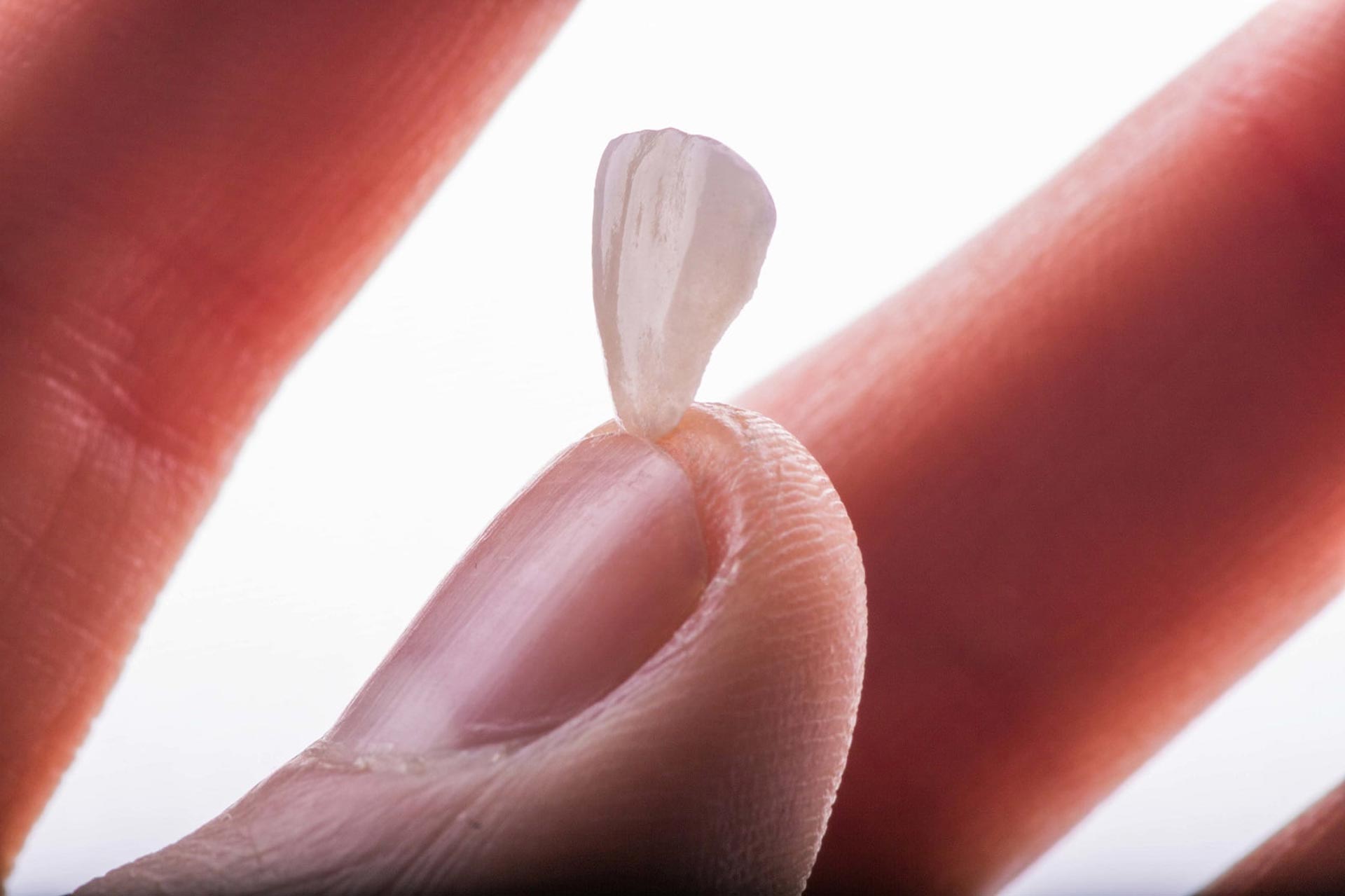
What are the Disadvantages of Veneers?
Veneers are thin shells of porcelain or composite resin that are bonded to the front of the teeth to improve their appearance. They can have many benefits, such as creating a natural-looking, white, and symmetrical smile. However, they also have some disadvantages that you should be aware of before deciding to get them. Here are some of the main drawbacks of veneers:
- They can be expensive and not covered by insurance: Veneers are considered a cosmetic procedure and not a medical necessity, and therefore not eligible for reimbursement or coverage by most dental insurance plans. The cost of veneers can vary depending on the type, number, and quality of the veneers, and the location and expertise of the dentist. The average cost of veneers in Turkey is about 300 to 500 USD per tooth, while the average cost of veneers in the US is about 1000 to 2000 USD per tooth. Therefore, getting veneers can be a significant financial investment, and you should consider your budget and options carefully before deciding to get them.
- They can cause sensitivity and discomfort: Veneers can also cause some side effects and complications, such as sensitivity and discomfort. Since veneers require the removal of some enamel, the teeth can become more sensitive to hot, cold, sweet, or sour stimuli, and cause pain or discomfort. This sensitivity can be temporary or permanent, depending on the amount of enamel removed and the individual’s response. Veneers can also cause some discomfort during and after the procedure, such as soreness, inflammation, or bleeding of the gums, or irritation of the surrounding tissues. These symptoms can be managed with painkillers, anti-inflammatory drugs, or ice packs, and usually subside within a few days or weeks. However, if the symptoms persist or worsen, you should contact your dentist as soon as possible, as they may indicate an infection, an allergic reaction, or a poorly fitted veneer.
- They can get damaged or need replacement: Veneers are not indestructible, and they can chip, crack, or fall off due to trauma, decay, or poor bonding. Therefore, it is important to avoid habits that can damage your veneers, such as biting your nails, chewing on hard objects, or grinding your teeth. You should also visit your dentist regularly for check-ups and adjustments, and follow their instructions on how to clean and protect your veneers. Veneers can last anywhere from 5 to 15 years or more, depending on the type of veneer and the care and maintenance they receive. However, they will eventually need to be replaced, which can add to the overall cost and inconvenience of having veneers.
- They are irreversible and may not suit everyone: Veneers are a permanent solution, and they cannot be removed once they are bonded to the teeth. This means that you will have to live with your veneers for the rest of your life, or replace them with new ones if they get damaged or worn out. Veneers also require the removal of some enamel, which is an irreversible process that can weaken the natural structure of the teeth. Therefore, veneers may not be suitable for everyone, and you should consult with your dentist to determine if they are the best option for you. Some factors that may affect your eligibility for veneers include the condition and health of your teeth and gums, the amount and quality of your natural enamel, the alignment and bite of your teeth, your oral hygiene and lifestyle habits, and your expectations and preferences.
These are some of the main disadvantages of veneers that you should consider before getting them. Veneers can be a great way to enhance your smile and confidence, but they also have some risks and limitations that you should be aware of. If you have any questions or concerns about veneers, you should talk to your dentist and get their professional opinion and advice. They can help you weigh the pros and cons of veneers, and decide if they are right for you.

They Can Be Expensive and Not Covered by Insurance
Veneers are considered a cosmetic procedure and not a medical necessity, and therefore not eligible for reimbursement or coverage by most dental insurance plans. The cost of veneers can vary depending on the type, number, and quality of the veneers, and the location and expertise of the dentist. The average cost of veneers in Turkey is about 300 to 500 USD per tooth, while the average cost of veneers in the US is about 1000 to 2000 USD per tooth . Therefore, getting veneers can be a significant financial investment, and you should consider your budget and options carefully before deciding to get them.
Some alternatives or options to reduce the cost of veneers
Veneers are a cosmetic dental procedure that can improve the appearance of your smile, but they can also be expensive and not covered by insurance. If you are looking for some alternatives or options to reduce the cost of veneers, here are some suggestions:
- Dental tourism: You can travel to another country where the cost of veneers is lower, such as Turkey, Mexico, Thailand, or India. However, you should do your research and find a reputable and qualified dentist, and be aware of the potential risks and complications of getting dental work abroad, such as infection, poor quality, or lack of follow-up care.
- Payment plans: You can ask your dentist if they offer any payment plans or financing options for veneers, such as monthly installments, low-interest loans, or credit cards. This can help you spread the cost of veneers over time and make it more affordable. However, you should read the terms and conditions carefully and make sure you can afford the interest and fees.
- Discounts: You can look for any discounts or special offers that your dentist or dental clinic may have for veneers, such as seasonal promotions, referral bonuses, or loyalty programs. You can also check if you are eligible for any discounts based on your age, occupation, or membership in certain organizations. However, you should not compromise on the quality or safety of your veneers for the sake of saving money.
These are some of the alternatives or options to reduce the cost of veneers, but you should always consult with your dentist and weigh the pros and cons of each option before making a decision. Veneers are a long-term investment in your smile, and you should choose the option that best suits your needs and budget.
They Can Cause Sensitivity and Discomfort
Veneers can also cause some side effects and complications, such as sensitivity and discomfort. Since veneers require the removal of some enamel, the teeth can become more sensitive to hot, cold, sweet, or sour stimuli, and cause pain or discomfort. This sensitivity can be temporary or permanent, depending on the amount of enamel removed and the individual’s response. Veneers can also cause some discomfort during and after the procedure, such as soreness, inflammation, or bleeding of the gums, or irritation of the surrounding tissues. These symptoms can be managed with painkillers, anti-inflammatory drugs, or ice packs, and usually subside within a few days or weeks. However, if the symptoms persist or worsen, you should contact your dentist as soon as possible, as they may indicate an infection, an allergic reaction, or a poorly fitted veneer123.
They Can Be Damaged or Discolored
Veneers are not indestructible, and they can chip, crack, or fall off due to trauma, decay, or poor bonding. Therefore, it is important to avoid habits that can damage your veneers, such as biting your nails, chewing on hard objects, or grinding your teeth. You should also visit your dentist regularly for check-ups and adjustments, and follow their instructions on how to clean and protect your veneers. Veneers can last anywhere from 5 to 15 years or more, depending on the type of veneer and the care and maintenance they receive. However, they will eventually need to be replaced, which can add to the overall cost and inconvenience of having veneers123.
Veneers can also get discolored over time, especially if they are made of composite resin, which is more prone to staining than porcelain. Some factors that can cause veneers to stain include smoking, drinking coffee, tea, or wine, or eating foods with strong colors, such as berries, curry, or tomato sauce. To prevent or reduce discoloration, you should avoid or limit these habits, and brush your teeth regularly with a non-abrasive toothpaste. You can also ask your dentist about professional whitening treatments, but keep in mind that they may not work on all types of veneers, and they may affect the color match between your veneers and your natural teeth123.
FAQs

How long does the veneer procedure take?
The veneer procedure can take different amounts of time depending on the type of veneer and the individual case. However, a general estimate is that the veneer procedure takes about three weeks and involves three visits to the dentist. Here is a brief overview of the steps involved in the veneer procedure:
- The first visit is for consultation, examination, and impression. Your dentist will evaluate your teeth and gums, take X-rays and photos, and make a mold or scan of your teeth. You will also choose the color and shape of your veneers with your dentist.
- The second visit is for tooth preparation and temporary veneer placement. Your dentist will remove a thin layer of enamel from your teeth to make room for the veneers. This may require local anesthesia. Your dentist will then place temporary veneers on your teeth to protect them until the permanent ones are ready.
- The third visit is for veneer bonding and adjustment. Your dentist will remove the temporary veneers and clean your teeth. They will then fit and adjust the permanent veneers until they are properly placed. They will check your bite and ask for your feedback before bonding the veneers to your teeth with a special cement. They will also clean off any excess cement and polish your veneers.
The veneer procedure can vary depending on the type of material, the number of teeth, and the individual case. Some types of veneers, such as composite or no-prep veneers, may require less time and fewer visits than porcelain or traditional veneers. You should consult with your dentist to get a more accurate estimate of the time and cost of your veneer procedure.
Are veneers permanent or removable?
Veneers are thin coverings that are bonded to the front of the teeth to improve their appearance. There are different types of veneers, such as porcelain, composite, or snap-on veneers. Most veneers are permanent, which means they cannot be removed once they are attached to the teeth. However, some veneers, such as snap-on veneers, are removable and can be taken off and put on as needed. Removable veneers are less expensive and invasive than permanent veneers, but they may not look as natural or last as long. Whether you choose permanent or removable veneers, you should consult with your dentist to determine the best option for you

Are veneers suitable for everyone?
Veneers are a versatile solution but may not be suitable for everyone. A thorough consultation with the dentist is necessary to determine eligibility. Some factors that may affect the suitability of veneers include:
- The condition and health of the teeth and gums: Veneers require healthy teeth and gums that are free of decay, infection, or inflammation. If the teeth or gums have any problems, they need to be treated before getting veneers.
- The amount and quality of the natural enamel: Veneers require some enamel to be removed from the teeth to make room for the veneers. If the enamel is too thin, weak, or damaged, veneers may not bond well or may cause sensitivity or pain.
- The alignment and bite of the teeth: Veneers can correct minor issues with the alignment or spacing of the teeth, but they cannot fix severe cases of crookedness, overcrowding, or malocclusion. If the teeth are too misaligned or the bite is too off, veneers may not fit properly or may cause more problems.
- The oral hygiene and lifestyle habits: Veneers require good oral hygiene and care to maintain their appearance and function. The teeth and veneers need to be brushed and flossed regularly, and the dentist needs to be visited for check-ups and adjustments. Habits that can damage or stain the veneers, such as smoking, chewing on hard objects, or drinking coffee, tea, or wine, need to be avoided or limited.
- The expectations and preferences: Veneers are a permanent and irreversible solution, and they cannot be removed once they are bonded to the teeth. Therefore, the patient needs to be sure that they are happy with the color, shape, and size of the veneers, and that they match their natural teeth and facial features. The patient also needs to understand the risks and limitations of veneers, and the cost and time involved in the procedure.
These are some of the factors that may affect the suitability of veneers for different patients. Veneers can be a great way to enhance the smile and confidence, but they also require a commitment and responsibility from the patient. If you are interested in getting veneers, you should consult with your dentist and get their professional opinion and advice. They can help you weigh the pros and cons of veneers, and decide if they are right for you.
How do veneers compare to other cosmetic dental options?
Veneers are one of the most popular cosmetic dental options, but they are not the only ones. There are other treatments that can improve the appearance of your teeth, such as bonding, crowns, and teeth whitening. Each option has its advantages and disadvantages, and the best choice for you may depend on your dental condition, budget, and preferences. Here is a brief comparison of veneers and other cosmetic dental options:
- Veneers: Veneers are thin shells of porcelain or composite resin that are bonded to the front of your teeth to change their shape, color, size, and alignment. Veneers can correct various cosmetic issues, such as stained, chipped, crooked, or unevenly spaced teeth, and give you a natural-looking, white, and symmetrical smile. Veneers are also durable and long-lasting, and can resist stains better than natural teeth. However, veneers are also expensive and not covered by most dental insurance plans, and they require the removal of some enamel, which can make your teeth more sensitive and prone to decay. Veneers are also irreversible and may not suit everyone.
- Bonding: Bonding is a procedure where a tooth-colored resin material is applied to your teeth and hardened with a special light. Bonding can fix minor cosmetic issues, such as small gaps, chips, cracks, or stains, and improve the shape and function of your teeth. Bonding is also more affordable and less invasive than veneers, and it can be done in one visit. However, bonding is not as durable or stain-resistant as veneers, and it may not look as natural or match your teeth color perfectly. Bonding may also wear down or break over time, and it may need to be replaced more often than veneers.
- Crowns: Crowns are caps that cover the entire visible part of your teeth to restore their shape, size, strength, and appearance. Crowns are usually used to repair severely damaged or decayed teeth, or to protect teeth after root canal treatment. Crowns can also improve the cosmetic appearance of your teeth by changing their color, shape, or alignment. Crowns are made of various materials, such as porcelain, ceramic, metal, or resin, and they are custom-made to fit your teeth. Crowns are also strong and long-lasting, and they can protect your teeth from further damage. However, crowns are also more expensive and time-consuming than veneers or bonding, and they require the removal of more tooth structure, which can affect the health and sensitivity of your teeth. Crowns are also not the first choice for purely cosmetic concerns, as they may be too aggressive or unnecessary for some cases.
- Teeth whitening: Teeth whitening is a procedure that uses bleaching agents to lighten the color of your teeth and remove stains and discoloration. Teeth whitening can be done in-office or at-home, using various products, such as whitening strips, gels, trays, or pens. Teeth whitening can enhance the brightness and attractiveness of your smile, and it is fast and affordable. However, teeth whitening is not effective for all types of stains, such as those caused by trauma, medication, or fluorosis, and it may not work well on veneers, crowns, or fillings. Teeth whitening can also cause temporary sensitivity and irritation of your teeth and gums, and it may need to be repeated regularly to maintain the results.
These are some of the main cosmetic dental options that you can compare to veneers. Each option has its pros and cons, and the right choice for you may depend on your dental condition, budget, and preferences. You should consult with your dentist to determine the best option for you, and to learn more about the benefits and risks of each option. Your dentist can help you weigh the pros and cons of each option, and design and apply the best treatment for your smile.
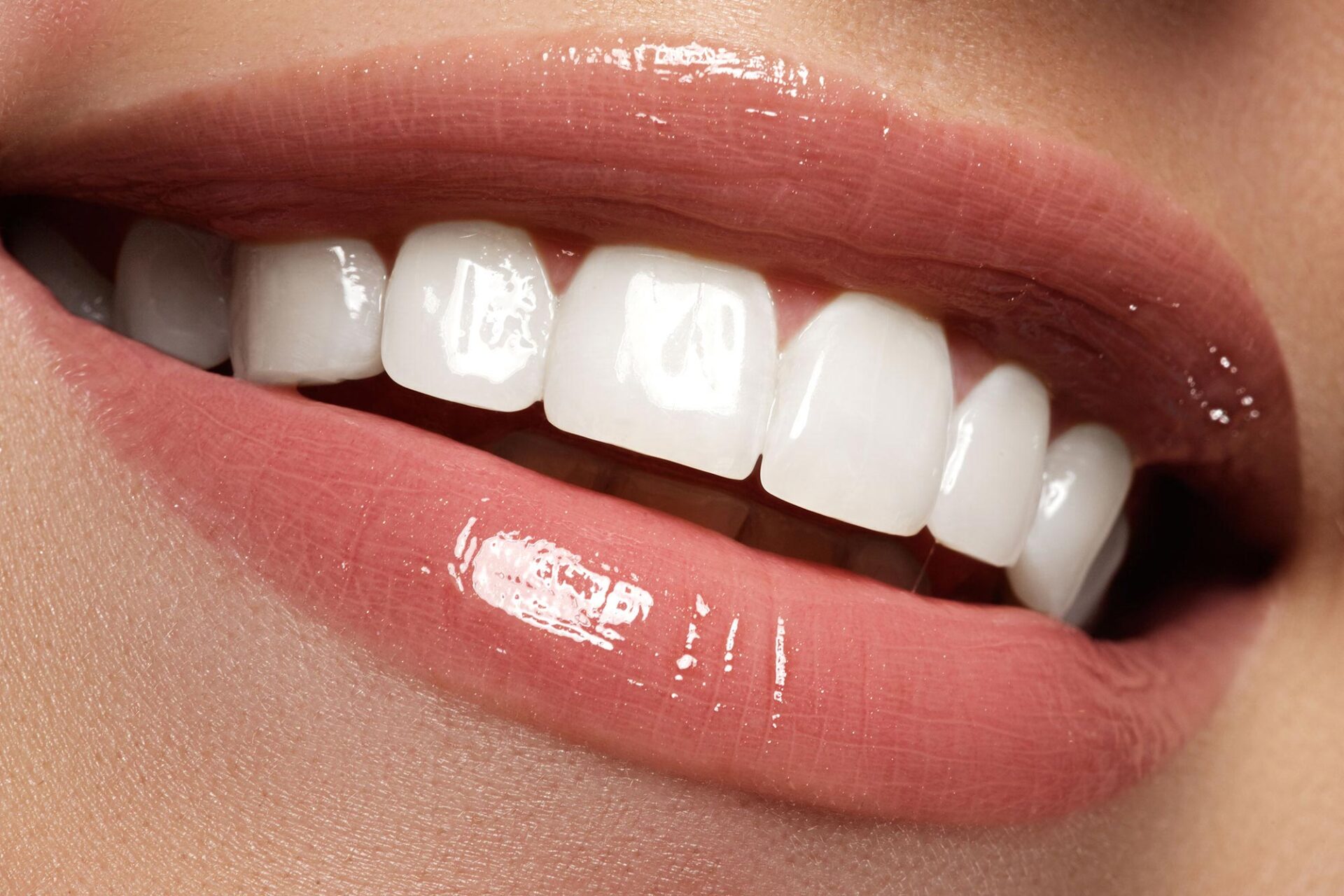
How can I find a good dentist for veneers?
Finding a good dentist for veneers is an important decision, as veneers are a permanent and costly procedure that can affect your smile and oral health. Here are some tips on how to find a good dentist for veneers:
- Ask for recommendations from your friends, family, or colleagues who have had veneers done. They can share their experience and satisfaction with their dentist and the results.
- Check online reviews and ratings of dentists who offer veneers in your area. You can use websites such as RealSelf or [Dental Departures] to find verified reviews and ratings of dentists who specialize in cosmetic dentistry and veneers. You can also see before and after photos of their work and compare prices and packages.
- Look for credentials and qualifications of the dentists you are considering. You should choose a dentist who has extensive training and experience in cosmetic dentistry and veneers, and who is a member of reputable organizations such as the [American Academy of Cosmetic Dentistry] or the [British Academy of Cosmetic Dentistry]. You can also check if they have any awards or recognitions for their work.
- Schedule a consultation with the dentists you are interested in. A consultation is a great opportunity to meet the dentist, ask questions, and discuss your goals and expectations. You should also ask to see their portfolio of veneers cases, and get a detailed treatment plan and cost estimate. You should feel comfortable and confident with the dentist you choose, and trust their expertise and advice.
- Consider traveling abroad for veneers. If you are looking for more affordable and high-quality veneers, you may want to consider traveling to another country where the cost of veneers is lower, such as Turkey. Turkey has become a popular destination for dental tourism, with many people traveling there specifically for affordable cosmetic dentistry. You can find experienced and qualified dentists who use high-quality materials and technology to provide veneers at a fraction of the cost you would pay in the UK. You can also enjoy a unique cultural experience and a holiday in one of the world’s most fascinating cities, Istanbul. However, you should do your research and find a reputable and reliable dental clinic, and be aware of the potential risks and complications of getting dental work abroad.
These are some of the tips on how to find a good dentist for veneers. Veneers are a great way to enhance your smile and confidence, but they also require a commitment and responsibility from you. You should choose a dentist who can provide you with the best possible results and care, and who can meet your needs and preferences. You should also follow your dentist’s instructions and recommendations on how to care for and maintain your veneers, and visit your dentist regularly for check-ups and adjustments. Veneers can be a great investment in your smile, but they also require a good dentist.

Conclusion
Veneers are a cosmetic dental procedure that can transform your smile by covering the front surface of your teeth with thin shells of porcelain or composite resin. Veneers can correct various aesthetic issues, such as stained, chipped, crooked, or unevenly spaced teeth, and give you a natural-looking, white, and symmetrical smile. Veneers can also boost your confidence and self-esteem, as well as improve your oral health and function.
However, veneers are not without drawbacks, and you should be aware of the potential risks and limitations before getting them. Veneers can be costly and not covered by most dental insurance plans, and they require the removal of some enamel, which can make your teeth more sensitive and prone to decay. Veneers can also get damaged or discolored over time, and they are irreversible and may not suit everyone. Therefore, you should consider your budget, expectations, and alternatives before deciding to get veneers.
Veneers are a personal and permanent choice, and you should consult with your dentist to determine if they are the best option for you. Your dentist can help you weigh the pros and cons of veneers, and design and apply them according to your needs and preferences. You should also follow your dentist’s instructions and recommendations on how to care for and maintain your veneers, and visit your dentist regularly for check-ups and adjustments. Veneers can be a great way to enhance your smile and confidence, but they also require a commitment and responsibility from you.
